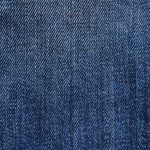When you're considering sustainable fashion, it's crucial to understand how materials like ring spun cotton play a role. This innovative fabric not only offers impressive durability and softness but also addresses environmental concerns by using resources more efficiently during production. It encourages you to buy fewer, higher-quality garments, which can ultimately shift your consumption habits. But the conversation doesn't stop there; it also raises questions about the ethical implications of production practices. What does this mean for the future of fashion? Exploring these layers reveals a deeper narrative waiting to unfold.
Table of Contents
Understanding Ring Spun Cotton
Ring spun cotton is a versatile fabric made by twisting and thinning cotton fibers, creating a soft and durable material that's perfect for sustainable fashion. Unlike conventional cotton, which is often less resilient, ring spun cotton offers a refined texture and superior strength, making it an ideal choice for high-quality garments.
When you choose clothing made from ring spun cotton, you're not just opting for comfort; you're also investing in a fabric that's built to last. This longevity means you won't need to replace your clothes as frequently, which can reduce waste in the long run. For those who value a sustainable wardrobe, understanding the manufacturing process is essential.
The production of ring spun cotton involves a careful method that maximizes fiber utilization, ensuring minimal waste. The twisted fibers create a tighter yarn, resulting in a denser textile that offers better durability compared to regular cotton. You might find that apparel made from this fabric holds its shape and color well, even after multiple washes.
Environmental Benefits of Ring Spun Cotton
Choosing ring spun cotton not only enhances your wardrobe but also significantly reduces environmental impact through its sustainable production processes. This method involves less waste and fewer chemicals, making it a more eco-friendly option compared to conventional cotton.
Consider these key environmental benefits:
- Lower Water Usage: Ring spun cotton typically requires less water in production, preserving this precious resource.
- Reduced Chemical Treatment: The spinning process minimizes the need for harsh chemicals, which can pollute waterways and harm ecosystems.
- Biodegradable Material: Since it's made from 100% cotton, ring spun fabric is biodegradable, returning to the earth without leaving harmful residues.
- Energy Efficiency: The production of ring spun cotton can be more energy-efficient, as modern machinery optimizes the spinning process, resulting in lower carbon emissions.
Durability and Longevity in Fashion
Durability and longevity are essential qualities in fashion that help you build a sustainable wardrobe while reducing waste.
When you choose ring spun cotton, you're opting for a fabric known for its strength and resilience. Unlike regular cotton, ring spun cotton is made by twisting and thinning strands together, creating a tighter, more durable fabric that can withstand everyday wear and tear.
Investing in high-quality pieces made from ring spun cotton means your garments are likely to last longer. This longevity not only saves you money over time, but it also means fewer items end up in landfills. You're making a conscious choice to wear fewer, but high-quality pieces in your wardrobe.
Moreover, you can easily care for ring spun cotton. Its durable composition withstands regular washing and doesn't lose its shape or color quickly. This means your favorite garments look fresh and vibrant longer, allowing you to enjoy them instead of replacing them frequently.
When you prioritize durability and longevity in your fashion choices, you contribute to a more sustainable future. Embracing ring spun cotton can be a significant step toward a wardrobe that works for both you and the planet.
Ethical Production Practices
Focusing on the production process is just as important as the durability of the garments you wear, as ethical practices play a key role in creating a sustainable fashion industry.
When you choose to buy clothing made from ring spun cotton, you're not just opting for quality; you're also supporting ethical production methods.
Here are some key ethical practices that contribute to sustainable fashion:
- Fair wages ensure that workers receive a livable income for their efforts.
- Safe working conditions protect the health and well-being of garment makers.
- Transparent supply chains allow you to trace where your clothes come from.
- Reduced environmental impact minimizes pollution and conserves resources during production.
Consumer Awareness and Choices
Being aware of your clothing choices empowers you to make a positive impact on the environment and support sustainable fashion.
By understanding the benefits of materials like ring spun cotton, you can make informed decisions that align with your values. This cotton option isn't only softer and stronger but also produced with less water and fewer chemicals compared to conventional cotton.
When shopping, look for brands that prioritize sustainability in their production processes. Check labels for certifications like GOTS (Global Organic Textile Standard) or OEKO-TEX, which indicate responsible sourcing. Your choices can encourage companies to adopt eco-friendly practices, creating a ripple effect within the industry.
Also, consider the life cycle of your clothing. Buy quality over quantity, aiming for timeless pieces that will last. After wearing them, recycle or donate them instead of tossing them in the trash. This reduces waste and promotes a circular economy.
Engaging with your clothing choices allows you to express your style while contributing to a healthier planet. Each purchase you make can reflect your commitment to sustainability and influence others to do the same, fostering a collective movement toward responsible fashion.
Frequently Asked Questions
What Is the History of Ring Spun Cotton Production?
Ring spun cotton production dates back to the 18th century, when inventors developed spinning machines. You'll find this technique offers softer, stronger yarns, revolutionizing the textile industry and enhancing fabric quality in various applications throughout history.
How Does Ring Spun Cotton Compare to Traditional Cotton?
When you compare ring spun cotton to traditional cotton, you'll notice ring spun's greater softness and durability. It's smoother, resulting in a more comfortable feel, while traditional cotton often lacks this level of quality and resilience.
Are There Specific Brands That Exclusively Use Ring Spun Cotton?
Yes, you'll find brands like American Giant and PACT that predominantly use ring spun cotton in their products. They focus on quality and sustainability, ensuring you get durable and comfortable clothing while supporting responsible practices.
Can Ring Spun Cotton Be Recycled Effectively?
Yes, you can recycle ring spun cotton effectively. Many recycling facilities accept it, helping reduce waste. Just check local options, as some processes might differ. Remember, recycling contributes to a more sustainable textile industry overall.
What Are Common Uses of Ring Spun Cotton in Fashion?
You'll find ring spun cotton in various fashion items, like t-shirts, denim, and loungewear. Its soft texture and durability make it popular for casual wear, ensuring comfort and style in your everyday wardrobe.
- How Does Ring Spun Cotton Affect Garment Fit and Shape Retention? - August 13, 2024
- What Are the Challenges in Producing Ring Spun Cotton? - August 13, 2024
- Is Ring Spun Cotton Suitable for Plus-Size Clothing? - August 13, 2024







